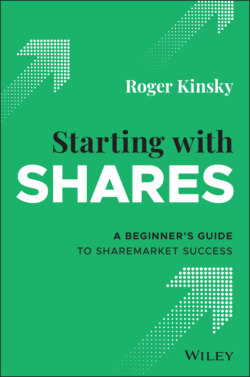Читать книгу Starting With Shares - Roger Kinsky - Страница 9
Knowledge level you'll need
ОглавлениеI have written many non‐fiction books over the past 50 years, and taught many classes on subjects ranging from engineering theory to shares. When I start teaching a new class or writing a new book, I face the difficulty of determining the knowledge level of the students or readers who want to learn. If I pitch the starting point too high, those who don't have the pre‐requisite knowledge get lost at the start and have to try to catch up. But starting from behind isn't a good idea when learning a new skill or acquiring new knowledge because you have to learn the old stuff at the same time as you are trying to absorb the new.
‘How am I going to catch up?’
On the other hand, if I pitch the beginning point too low, those who already know a fair bit get bored and can easily lose interest. After all, if someone is going to learn something new they need to be interested.
My publishers and I decided to pitch this book about shares at the beginner level — which explains the title ‘Starting with Shares’. I've been faithful to the title and assumed you know very little about shares, and have made that my starting point. You can find plenty of books about shares and lots of info is available on the internet, but the problem with most of these sources is that they usually assume the reader already knows a fair bit about shares — certainly enough to understand the terminology. In this book, I explain everything in a way that you can understand even if you know virtually nothing about shares. As far as possible, I avoid the use of jargon — although I do have to use some of the terms commonly used with shares because you need to understand them to find your way. But before I use a term that might be unfamiliar to you, I explain it first in everyday, straightforward language.
If you already know a fair bit about shares, you may want to skim over some of the content in the early chapters. But there's an inherent danger in this that I now discuss.
